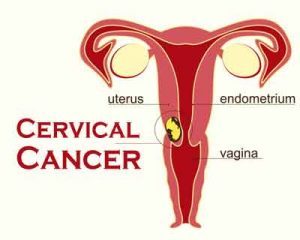- Home
- Editorial
- News
- Practice Guidelines
- Anesthesiology Guidelines
- Cancer Guidelines
- Cardiac Sciences Guidelines
- Critical Care Guidelines
- Dentistry Guidelines
- Dermatology Guidelines
- Diabetes and Endo Guidelines
- Diagnostics Guidelines
- ENT Guidelines
- Featured Practice Guidelines
- Gastroenterology Guidelines
- Geriatrics Guidelines
- Medicine Guidelines
- Nephrology Guidelines
- Neurosciences Guidelines
- Obs and Gynae Guidelines
- Ophthalmology Guidelines
- Orthopaedics Guidelines
- Paediatrics Guidelines
- Psychiatry Guidelines
- Pulmonology Guidelines
- Radiology Guidelines
- Surgery Guidelines
- Urology Guidelines
IUDs may have a surprising benefit: Protection against cervical cancer

Considered a safe and highly effective contraception method, intrauterine devices (IUDs) may also be quietly offering protection against the third-most common cancer in women worldwide. A new study from the Keck School of Medicine of USC has found that IUD use is associated with a dramatic decrease in the incidence of cervical cancer.
The systematic review, published in Obstetrics & Gynecology on Nov. 7, is the first to combine data from multiple studies on IUDs and cervical cancer. The analysis included data from 16 high-quality observational studies involving more than 12,000 women worldwide. Results showed that in women who used an IUD, the incidence of cervical cancer was a third lower.
"The pattern we found was stunning. It was not subtle at all," says the study's lead author, Victoria Cortessis, PhD, associate professor of clinical preventive medicine at the Keck School. "The possibility that a woman could experience some help with cancer control at the same time she is making contraception decisions could potentially be very, very impactful."
Averting a looming global health crisis
The number of women diagnosed with cervical cancer is steadily rising. According to the World Health Organization (WHO), approximately 528,000 women were diagnosed with cervical cancer worldwide in 2012, and 266,000 women died from the disease. By 2035, the WHO projects that those numbers will climb to more than 756,000 and 416,000, respectively.
For women in developing countries, where cervical cancer prevention resources such as the human papillomavirus (HPV) vaccine or regular cervical screenings are scarce, and where populations are increasing rapidly, a contraceptive that offers protection against cervical cancer could have a profound effect, Cortessis explains.
"A staggering number of women in the developing world are on the verge of entering the age range where the risk for cervical cancer is the highest -- the 30s to the 60s. Even if the rate of cervical cancer remains steady, the actual number of women with cervical cancer is poised to explode," Cortessis says. "IUDs could be a tool to combat this impending epidemic."
Should gynecologists begin recommending IUDs for protection against cervical cancer?
Not quite yet, but it could be on the horizon. Understanding the mechanism of action behind the protective effect of IUDs is the next logical step, Cortessis says. Some scientists speculate that the placement of an IUD stimulates an immune response in the cervix, giving the body an opportunity to fight an existing HPV infection that could one day lead to cervical cancer. Another possibility is that when an IUD is removed, some cervical cells that contain HPV infection or precancerous changes may be scraped off.
"If we can demonstrate that the body mounts an immune response to having an IUD placed, for example, then we could begin investigating whether an IUD can clear a persistent HPV infection in a clinical trial," explains gynecologic oncologist and study coauthor Laila Muderspach, MD, chair of obstetrics and gynecology at the Keck School. "The results of our study are very exciting. There is tremendous potential."

Disclaimer: This site is primarily intended for healthcare professionals. Any content/information on this website does not replace the advice of medical and/or health professionals and should not be construed as medical/diagnostic advice/endorsement or prescription. Use of this site is subject to our terms of use, privacy policy, advertisement policy. © 2020 Minerva Medical Treatment Pvt Ltd